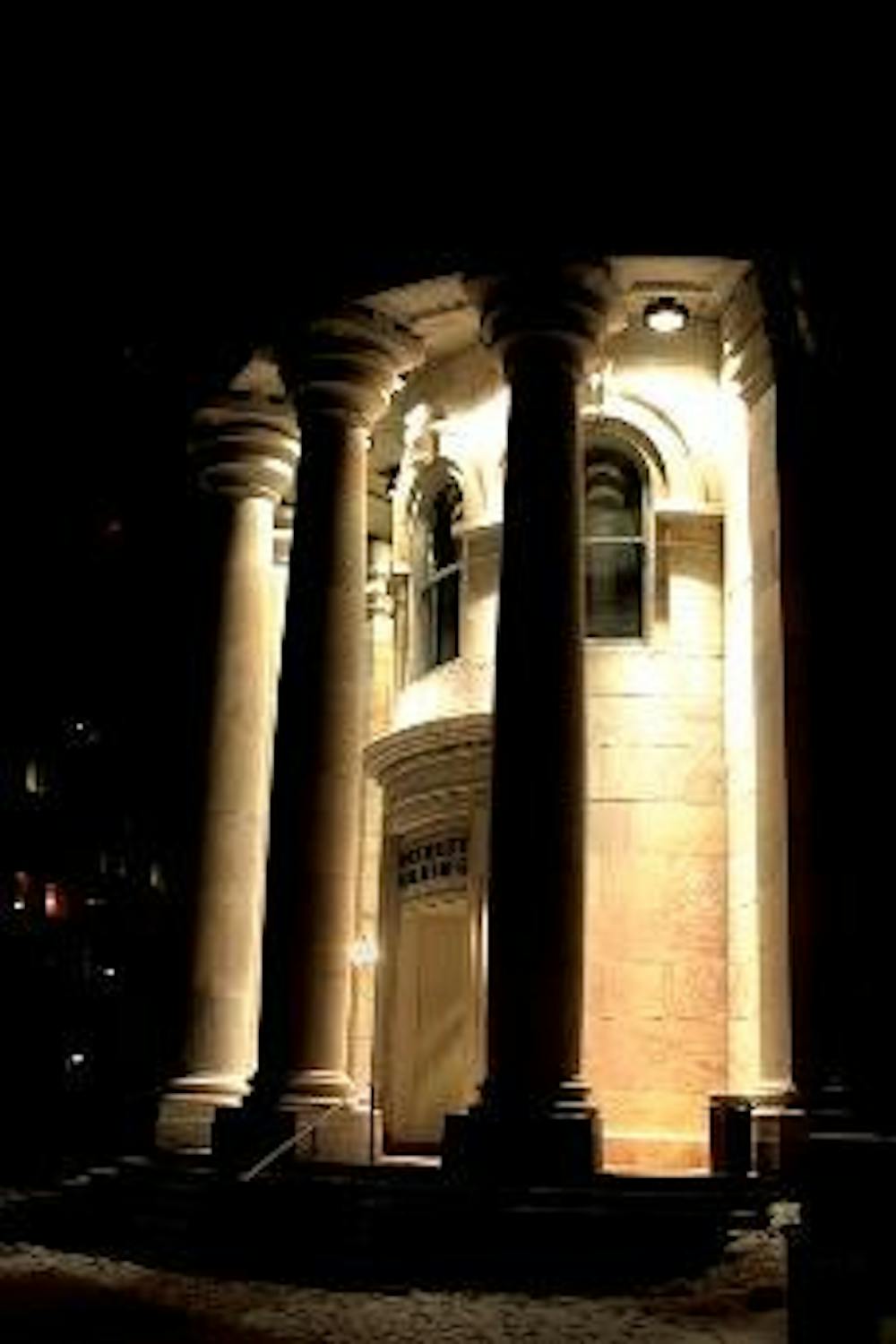Local community Advisory Neighborhood Commission 3D members voted at their monthly public meeting on Feb. 7 in favor of a proposed renovation and expansion of AU's McKinley Building. The ANC's favorable vote included a series of conditions, which were prompted by reports of disruptive behavior in off-campus houses.
AU officials are planning to renovate and expand the McKinley Building so it can become the new site for the School of Communication. The renovation and expansion will include the addition of 3,152 square feet of new floor space, a "converged" newsroom, a TV studio and a 200-seat theater, according to the university's Web site.
In order for the renovation and expansion to take place, the D.C. Zoning Commission requires the university get a special exception from ANC 3D.
The Zoning Commission requires the university to comply with a set of 16 conditions in order to obtain a special exception. The university is scheduled to meet with the Zoning Commission for a final decision March 15.
ANC 3D Commissioner Tom Smith and the five other commissioners at the meeting said four areas needed to be improved in order for them to grant the exception.
The four conditions include adequate university-supplied student housing, the university's formation of a neighborhood liaison committee, an updated traffic analysis for each individual request to construct a building and the implementation of the university's Neighborhood Action Program to address the conduct of students living off-campus.
Presidential Chief of Staff David Taylor and Assistant Vice President of Facilities and Administrative Services Jorge Abud were present at the meeting as representatives of the university.
According to Taylor, the Zoning Commission originally approved the McKinley renovation and expansion in 2001. At that time, the university included the project in its 10-year construction plan. AU is required to submit the plan in order to give the community a clear picture of any potential construction projects the university might undertake.
"It all hinges on the fact that we are a university in a residentially zoned area, and thus it is incumbent on us to work with the surrounding community and D.C. officials so we are at least on the same page with a lot of projects we do," Taylor said.
Smith said he was mostly "concerned about the disruption off campus."
He told Taylor and Abud that he had received many complaints from residents in the community that AU students were causing problems in surrounding neighborhoods.
Caroline Quandt, a member of the community, said she has many problems with the AU students who live next door. She said there is underage drinking and "bottles left all over the yard and street."
Taylor said that normally, the Office of Campus Life and the Associate Dean of Students would attempt to contact students about complaints about off-campus behavior. If that does not correct the situation, they will then contact the property owner.
"If there is a problem with students' off-campus behavior, we step in and try to resolve it," Taylor said in an e-mail.
Smith told Taylor and Abud that it would be "helpful if there were a written process and procedure" regarding the disruptive off-campus behavior of students.
Brooke Randolph, a sophomore in the School of Communication, said she thinks the university should only be responsible for students living on campus.
"I don't think that American should be held accountable for student behavior off campus," Randolph said. "That should be a concern they should take up with city officials, not AU."
However, the commissioners and Quandt said they feel the university's Campus Action Plan is not doing as much as it could.
"The system isn't functioning and should be improved," Quandt said.
Elizabeth Taylor, a junior in the School of Public Affairs, said she thinks this behavior is common for college-aged students.
"I can sympathize with the complaints of the community, but it's unrealistic to live near a university and not expect this type of behavior," she said.
David Taylor said AU would work with the neighborhood to improve problems.
"The campus plan includes a stipulation that AU assist the neighborhood," Taylor said in an e-mail. "In the world beyond campus, students are subjected to abiding by the rules and laws beyond campus."
Smith told Abud and Taylor that Georgetown University has done a great job improving the problems in the neighborhoods where its students live.
"Maybe there is a model there for you to look at," Smith said.
While ANC 3D said it would not pass the special exception to allow the university to renovate until the four conditions are dealt with, the final decision is up to the Zoning Commission.
"We will review these items with those in the university administration who have responsibility for addressing these issues. ... We will respond appropriately before our March 15 hearing before the Zoning Commission," Taylor said in an e-mail.





